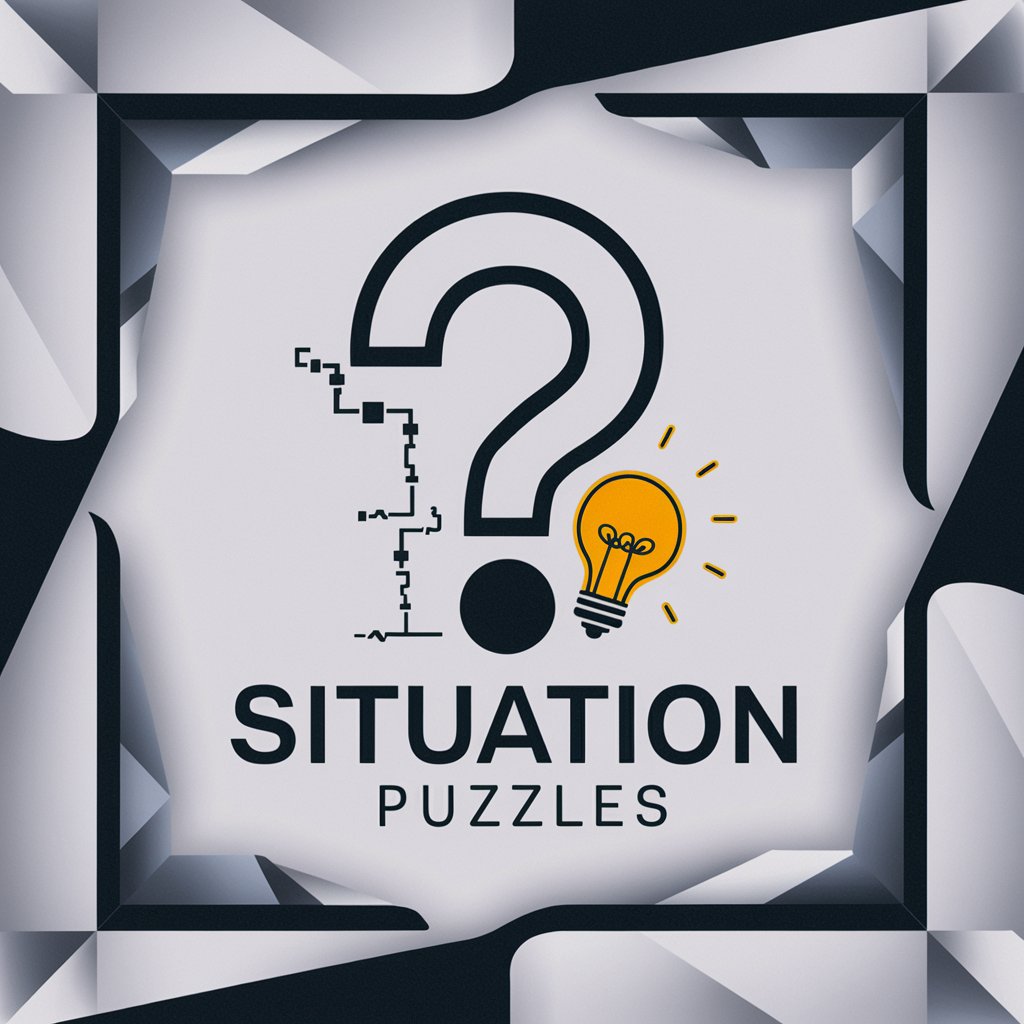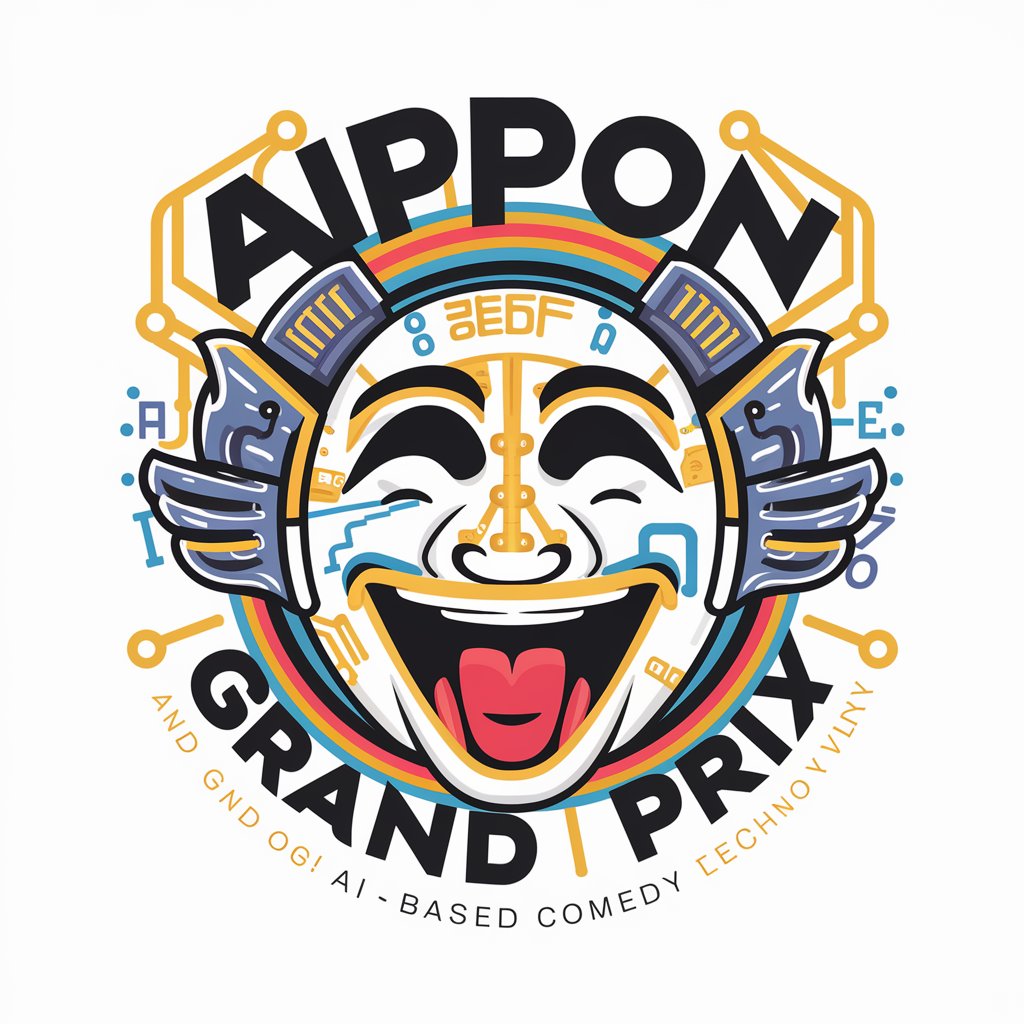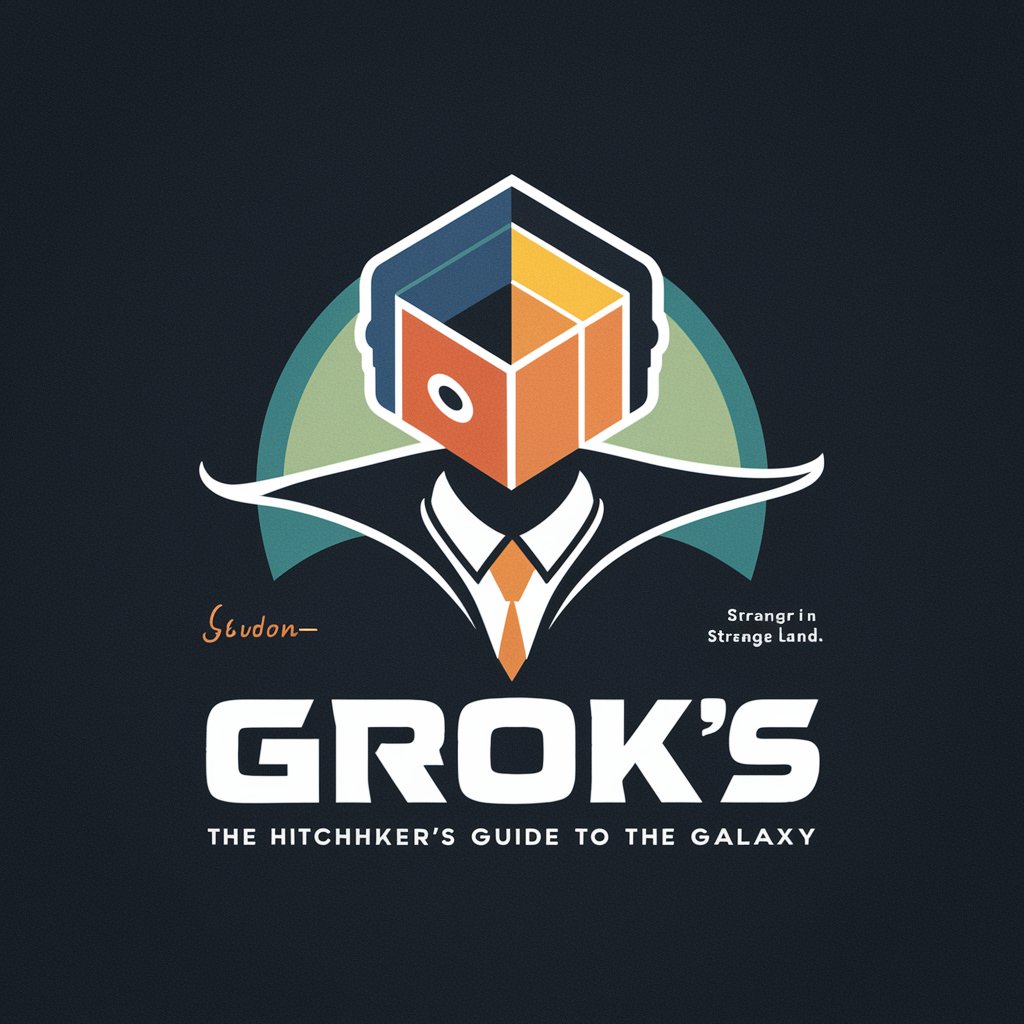Situation Puzzles - Lateral Thinking Challenges

Welcome to Situation Puzzles! Ready to solve some mysteries?
Unravel Mysteries with AI-Powered Puzzles
A man enters a room and sees a surprising scene. He...
Two friends are playing a game, and suddenly one of them...
A woman receives an unexpected message that leads her to...
A stranger walks into a bar and immediately everyone...
Get Embed Code
Introduction to Situation Puzzles
Situation Puzzles are a form of brain teasers where players are given a scenario with an unusual or intriguing situation and must ask yes-or-no questions to unravel the mystery behind it. These puzzles encourage lateral thinking and creative problem-solving. For example, a classic puzzle involves a man who orders albatross soup, eats one bite, then takes his own life upon realizing he's eaten something far more personal under grim circumstances. This puzzle demonstrates the complex, often darkly fascinating scenarios that challenge players to think outside the box. Powered by ChatGPT-4o。

Main Functions of Situation Puzzles
Critical Thinking Stimulation
Example
A man walks into a bar and asks for a glass of water. The bartender pulls a gun on him. The man says 'Thank you' and leaves.
Scenario
This scenario forces players to deduce why the man thanked the bartender, leading to the revelation that he had hiccups, illustrating how situation puzzles stimulate critical thinking by challenging assumptions.
Team Building
Example
A woman shoots her husband, then holds him underwater for five minutes. Next, she hangs him. Right after, they go out for a lovely dinner. How?
Scenario
This puzzle requires collaboration to solve, as it turns out the woman took a photo of her husband, 'shooting' with a camera, 'holding him underwater' in a photo development solution, and 'hanging' the photo to dry. It's an excellent exercise in team building.
Creative Problem-Solving
Example
A man is found dead in a room with 53 bicycles in front of him.
Scenario
Participants learn the man cheated in a card game using extra 'bicycles' (a brand of playing cards), leading to his demise. This puzzle showcases the function of promoting creative problem-solving through metaphorical and lateral thinking.
Ideal Users of Situation Puzzles
Educators and Students
Educators can use these puzzles to develop critical thinking and problem-solving skills in students, making learning engaging and interactive.
Team Leaders and Managers
Professionals can use situation puzzles as team-building exercises to enhance collaboration, communication, and creative problem-solving skills among team members.
Puzzle Enthusiasts
Individuals who enjoy brain teasers, riddles, and intellectual challenges will find these puzzles both entertaining and mentally stimulating.

Using Situation Puzzles
1
Visit yeschat.ai for a free trial without login, also no need for ChatGPT Plus.
2
Choose a situation puzzle to present to players. This should be a short description of a scenario that appears unusual or intriguing.
3
Players ask yes-or-no questions to uncover the scenario's underlying logic or story. The puzzle master can only respond with 'yes', 'no', or 'that depends'.
4
Encourage players to think laterally and challenge their assumptions about the scenario to find the solution.
5
Reveal the answer when players have correctly deduced it or when they're unable to solve it, to ensure a satisfying conclusion.
Try other advanced and practical GPTs
AIPPON Grand Prix
Unleash Humor with AI-Powered Creativity

Inquisitive Resolver
Insightful AI for Complex Problem-Solving

Web Dev Insights
Empowering developers with AI-driven insights

Design Recruiter
Ace Design Interviews with AI

Focus Market
Insightful AI for Strategic Marketing Mastery

Socrative Mind
Explore Your Mind with AI

ジオグラ先生
Navigate, Record, and Share Your Trails

Gorillatrail Promptsmith
Unleash Creativity with AI-Powered Prompts

SuperPrompt GPT
Crafting Precision with AI-Powered Prompts

NEEDY x Women News
Empowering through AI-driven Women's Insights

Grok
Wisdom and Wit at Your Command

Fortune Avatar Creator
Personalize Your Digital Universe

Situation Puzzles Q&A
What are the essential elements of a situation puzzle?
A situation puzzle typically involves a strange or intriguing scenario, a puzzle master who knows the answer, and players who ask yes-or-no questions to solve the puzzle.
Can situation puzzles have multiple solutions?
Generally, situation puzzles have a single intended solution, but creative interpretations or different approaches to the puzzle can sometimes lead to alternative solutions.
Are situation puzzles suitable for all ages?
Yes, situation puzzles are versatile and can be adapted to suit all age groups, making them suitable for family games, educational purposes, or as ice-breakers.
How can situation puzzles be used in an educational context?
In education, situation puzzles can enhance critical thinking, problem-solving skills, and creativity. They encourage students to question assumptions and explore different perspectives.
What's the best way to facilitate a situation puzzle game?
The best way to facilitate a situation puzzle game is to provide clear rules, encourage open-minded thinking, listen carefully to questions, and guide players subtly towards the solution without giving it away.
